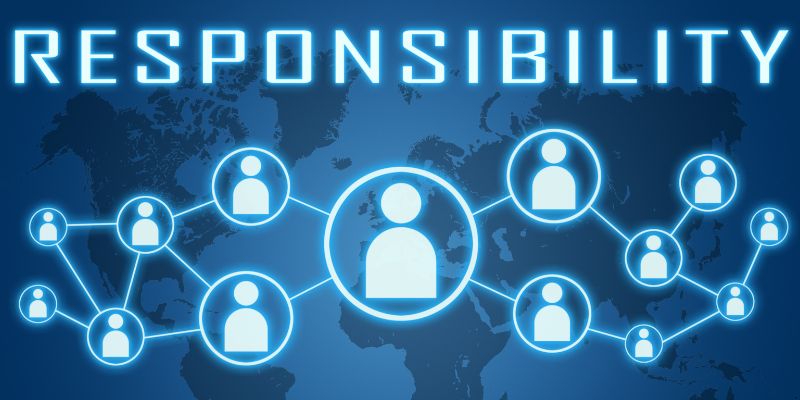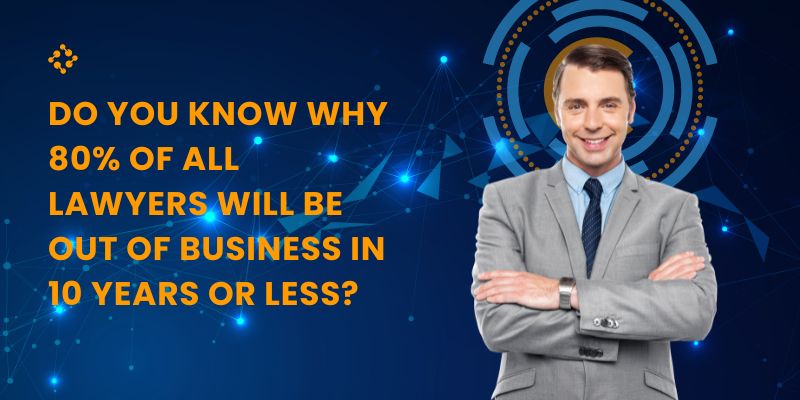Strategic Management Consulting: A Roadmap to Success

Imagine a world where your business thrives, overcoming challenges and quickly seizing opportunities. This might seem like a distant dream, but the secret to unlocking this reality is within your reach – strategic management consulting.
I am Gordon Grigg, a business consultant from Nashville, Tennessee.
Reading this article, you’ll uncover invaluable insights and powerful strategies. In addition, you will learn the best practices from my over three decades of strategic management consulting experience.
You might ask yourself, “Why should I read this entire article?” The answer is simple: this article will equip you with the knowledge and tools to transform your business. As a result, you will boost its growth and set it on the path to success.
By delving into the core components of strategic management consulting, you’ll learn:
- how to identify and address business challenges,
- build and lead effective teams, and
- foster a culture of continuous improvement.
Don’t miss the opportunity to propel your business to new heights.
Continue reading to discover the proven strategies that have helped countless businesses flourish. Then, learn how you can apply these lessons to your own enterprise.
As we delve into the heart of the matter, let’s explore the importance of identifying and addressing business challenges. Understanding the root of your enterprise’s issues allows you to develop effective solutions. As a result, you will create lasting success.
Identifying and Addressing Business Challenges

Navigating today’s complex business landscape requires identifying and tackling various challenges head-on. Strategic management consulting will elevate the process by:
Assessing and Diagnosing Problems
Implementing Data-Driven Solutions and
Adapting and Modifying Strategies
Assessing and Diagnosing Problems

Today, management consultants play a vital role in identifying problems in various business areas.
First, they dive deep into financial statements. This way, they uncover inconsistencies that may be affecting the company’s bottom line. For example, a consultant may discover unexplained variances in a company’s balance sheets. They can help determine the root cause and suggest improvements by digging deeper.
It’s not just about numbers; consultants assess a company’s ecosystem. First, they examine revenue, expenses, and profits to meet targets. Then, they develop strategies to increase profitability by identifying weak performance areas. So they are keeping businesses competitive in an ever-changing market.
Operations and processes are not immune to inefficiencies. Consultants analyze these aspects, pinpointing tasks that consume excessive time and resources. Then, they determine if automation can streamline operations, ultimately increasing overall productivity and efficiency.
Employees are the backbone of any organization, and their performance is crucial. Management consultants evaluate employee performance, providing constructive feedback. This way, they identify training and development opportunities. By fostering a high-performing workforce, they pave the way for long-term success.
Customer satisfaction is the key to a thriving business. Consultants monitor this through surveys and feedback mechanisms, understanding customer needs and expectations. As a result, they address concerns and complaints promptly. Also, they continuously improve the customer experience, boosting loyalty and retention.
Implementing Data-Driven Solutions

In this age of information, data-driven solutions are paramount. Management consultants leverage advanced analytics tools to
analyze large datasets. They discover patterns and insights in this way.
For instance, a retail consultant may use customer data to
- identify shopping trends,
- inform marketing strategies, and
- drive sales.
Developing performance metrics is essential. First, consultants identify relevant key performance indicators (KPIs). Then, they set realistic targets, aligning them with overall business objectives. Tracking progress and adjusting as needed ensures companies stay on track to achieve their goals.
Effective planning maximizes outcomes. Consultants craft action plans with clarity, breaking down goals into smaller steps.
They assign responsibilities and deadlines to tasks. This ensures that resources are allocated efficiently and projects move forward seamlessly.
Prioritizing initiatives based on impact allows companies to allocate resources wisely. First, consultants determine which projects yield the best results. Then, they focus on high-impact, low-effort initiatives first. This strategic approach ensures companies make the most of their resources.
Open communication is vital to success. Consultants ensure stakeholders understand their roles, fostering a culture of teamwork and accountability. By empowering employees to contribute, they help companies achieve their objectives and grow.
Adapting and Modifying Strategies
Business landscapes evolve constantly. The consultant’s role is to monitor their progress.
They review actual results against projections and identify areas where adjustments are needed.
Also, they make data-informed decisions for improvement. This ensures companies stay on track to achieve their goals.
Staying informed on industry changes is vital. Consultants research new technologies and innovations, attending conferences and workshops for insights. They network with peers and industry experts. This way, they keep businesses at the forefront of their respective fields.
Building and Leading Effective Teams

Management consultants know the value of a strong team. They assist companies in attracting and retaining top talent, ensuring the right people are in place to drive success.
By refining job descriptions, optimizing recruitment strategies, and implementing retention programs, consultants help companies build a talented workforce.
Fostering a Culture of Collaboration and Open Communication
A healthy team culture is essential for success. Consultants help companies create an environment where collaboration and open communication thrive.
They may facilitate team-building exercises, encourage regular feedback sessions, or implement tools to streamline communication. This fosters trust and strong working relationships, empowering employees to collaborate and excel.
Developing and Nurturing Leadership Skills among Team Members
A strong team requires effective leadership. Management consultants work with companies to develop leadership skills within their team members, nurturing a new generation of leaders.
They may offer training programs, mentorship, or coaching sessions to help employees develop their leadership potential. Companies build a strong foundation for future growth by investing in leadership development.
Strategic Planning and Execution

Now let’s dive into strategic planning and execution. Here is where management consultants align business objectives with market trends. This opens doors to new opportunities for companies.
Aligning Business Objectives with Market Trends and Opportunities
In a dynamic business environment, staying ahead is crucial. Management consultants help companies align their objectives with market trends and opportunities. This ensures they remain competitive and poised for growth.
Consultants help companies refine their objectives and develop strategies to capitalize on opportunities. They do it by conducting market research, analyzing competitors, and identifying emerging trends,
Creating and Implementing Action Plans to Achieve Short and Long-Term Goals

Setting goals is one thing; achieving them is another. Management consultants assist companies in creating and implementing action plans. This way, they can achieve their short- and long-term goals.
Consultants help companies execute their plans effectively by:
- Breaking down objectives into manageable tasks,
- assigning responsibilities, and
- setting deadlines.
This structured approach ensures progress and keeps the organization on track.
Monitoring Progress and Adjusting Strategies as Needed to Stay on Target
Success requires adaptability. Management consultants help companies monitor their progress.
They identify areas where adjustments are necessary. Then, they adjust strategies to stay on target. Also, make informed decisions based on the latest information. This iterative approach ensures companies remain agile and responsive to changing circumstances.
Enhancing Operational Efficiency and Productivity

Efficiency is key to a successful business. Management consultants work with companies to streamline processes and workflows. This way, they ensure resources are utilized effectively and maximize productivity.
Consultants help companies optimize their operations by identifying :
- bottlenecks,
- redundancies, and
- areas for improvement.
Leveraging Technology and Automation
Embracing technology and automation can significantly enhance productivity. Management consultants assist companies in identifying and implementing the right tools and technologies to optimize their operations.
By evaluating current systems and recommending upgrades or new solutions, consultants help companies stay competitive in the digital age.
Implementing Performance Management Systems
Effective performance management is essential for driving productivity. Management consultants help companies develop and implement performance management systems encouraging accountability and continuous improvement.
By setting performance targets, tracking progress, and providing regular feedback, consultants help companies cultivate a high-performance culture. For example, they may introduce a balanced scorecard approach to measure and monitor performance across various business areas.
Fostering a Culture of Continuous Improvement

Management consultants emphasize the importance of cultivating a growth mindset in businesses. This mindset fosters an environment of continuous learning, innovation, and improvement.
Consultants help companies embrace change and adapt to challenges by providing training, coaching, and resources.
Implementing Regular Feedback Loops and Performance Evaluations
Consistent feedback and performance evaluations are essential for continuous improvement. Management consultants assist companies in establishing effective feedback mechanisms and performance review processes.
By setting performance targets, tracking progress, and conducting regular evaluations, consultants help companies identify areas for improvement and growth.
Celebrating Successes and Learning from Failures
Recognizing achievements and learning from setbacks is vital for continuous improvement. Management consultants guide companies in celebrating successes and analyzing failures to foster a culture of learning and resilience.
By encouraging reflection and analysis, consultants help businesses identify lessons learned and apply them to future endeavors. For example, they may facilitate a post-project review to discuss what worked, what didn’t, and how to improve moving forward.
Conclusion

Strategic management consulting plays a crucial role in transforming businesses. By offering expertise, guidance, and support, consultants help companies navigate challenges, seize opportunities, and drive sustainable growth.
By tapping into their wealth of knowledge and experience, companies can chart a course for growth, overcome obstacles, and stay ahead in a competitive market. Embracing strategic management consulting is an investment in the future and the key to unlocking a business’s full potential.
In conclusion, strategic management consulting is invaluable for businesses looking to adapt, grow, and thrive in today’s ever-changing landscape.
The expertise and insights shared in this article, rooted in 30 years of management consulting experience, can help you transform your business and achieve success.
But, sometimes, even the most comprehensive advice isn’t enough to tackle your business’s unique challenges. That’s where a seasoned consultant comes in.
I’ve spent decades helping businesses just like yours navigate complex problems and identify untapped opportunities. With my hands-on approach and dedication to your success, I’m here to guide and support you every step of the way.
By working with me, you’ll gain access to tailored strategies, personalized guidance, and a wealth of experience that can only be gained through years of working in the trenches of management consulting.
I’ll take the time to understand your unique challenges and goals, and together, we’ll create a roadmap to overcome obstacles and unlock your business’s full potential.
Don’t let uncertainty and doubt hold you back from the success you deserve. By partnering with a strategic management consultant like me, you can rest assured that your business is in capable hands, equipped to tackle any challenge and seize opportunities as they arise.
Take the first step toward a brighter future for your business today. Reach out to me, and let’s begin your journey to success together.
With my expertise, passion, and commitment to your goals, we’ll turn your vision into reality and unlock the growth and prosperity you’ve always dreamed of.
Visit https://gordongrigg.com/ now to learn more about how I can help your business reach new heights through strategic management consulting.
Don’t wait any longer; seize the opportunity to transform your business and secure its future today.
Strategic Management Consulting: A Roadmap to Success Read More »
























































































